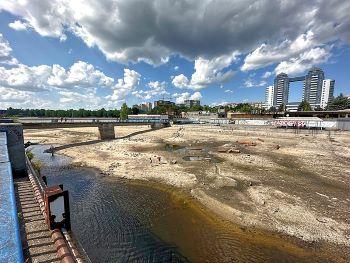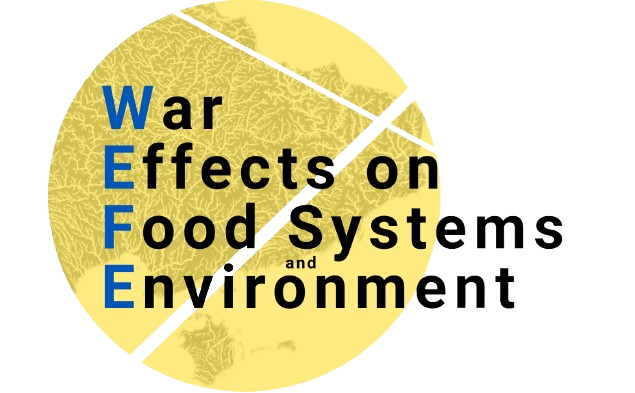Research network on the effects on food systems and the environment of Russia’s war against Ukraine (War Effects on Food systems and Environment)


Here we keep track of the activities of the WEFE Network, established during a workshop at the Institute of Geography of the University of Bern in September 2022.
Click here to subscribe to our mailing list!
Find out more about past WEFE network meetings and current WEFE members.
Russia’s 2022 invasion of Ukraine combined the destruction of human lives and built environment with havoc to the international security architecture; it also disrupted domestic and international food production and security, ecosystems (with implications for human health), and environmental and climate policies on various levels and with implications for present and future wellbeing, security and peace. Our initiative recognizes the acute need to assess the war-induced disruptions to food production and ecosystems, the contamination of habitation and cultivation areas in Ukraine; and develop implementable, sustainable solutions for restoring food systems and living areas. We also look beyond the war-induced problems within Ukraine into the environmental and food-related consequences in Ukraine’s neighboring countries (including Russia), the Caucasus, and Central Asia. Most of these countries experienced steep increases in food prices, massive disruptions to food trade routes and food production supply chains, and a sidelining of sustainable development and climate and environmental objectives with important consequences that require immediate attention. The initiative to form our network comes from acknowledging that the war poses multiple problems demanding new approaches, including inter- and transdisciplinary collaboration, as they transcend national and disciplinary boundaries.
The WEFE network brings together researchers, journalists, and NGO activists with a background in various disciplines - sociology, geography, political science, ecology, anthropology, history, legal studies - and research fields - environmental studies, rural, agrarian and food studies, nature conservation, land system sciences, environmental law, peace, conflict and security studies.

About the photographs:
Picture on the left depicts the flooding in Kherson Oblast in the village Novohrednyeve on Inhulets River after the destruction of the Kakhovka Dam. Source and License: Dsns.gov.ua, CC BY 4.0, via Wikimedia Commons.
Picture on the right shows the drop in the water levels near Zaporizhzhia in the aftermath of the destruction of the Kakhovka Dam. Source and License: Enno Lenze, CC BY 2.0, via Wikimedia Commons.